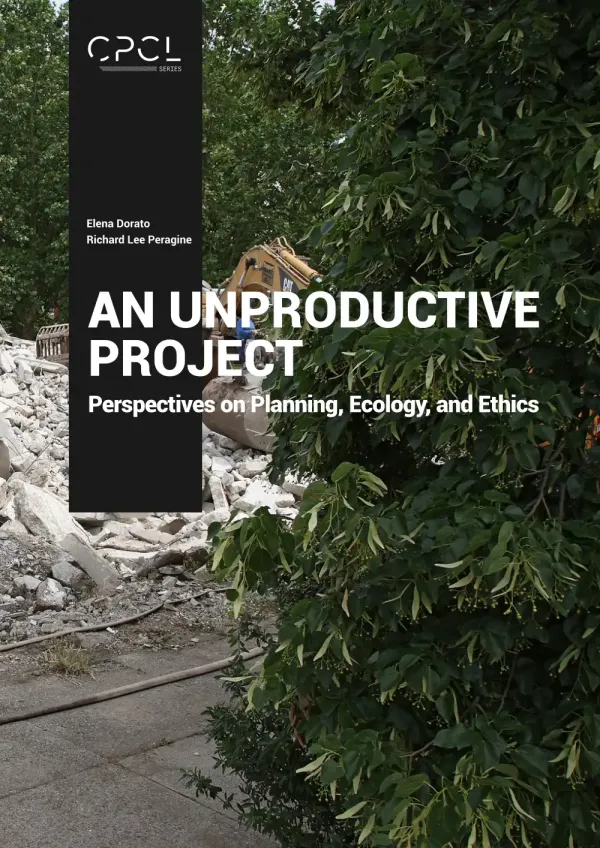An Unproductive Project
Perspectives on Planning, Ecology, and Ethics
Downloads

Synopsis
The familiar topic of production is the analytical and conceptual lens of this book. Yet, both the premise and outlook of all three chapters together hopefully determine a prismatic research perspective. Its points of view are quite expansive. Taken together, the three chapters can be read as different but parallel articulations of a shared problem: how to confront the compulsion to build that subtends architectural and planning disciplines. This issue is presented as transversal to design: it is tackled from different “scales.”
Chapter I posits the notion of unproduction as a theoretical and ethical necessity, drawing out a continuity between architecture, urbanism and territorial planning to highlight their common productivist logic.
Chapter II suggests unproductive activity as a source of spatial and political value in the urban public realm, focusing more on urban design and ecological urbanism.
Chapter III, in dialogue with Charlotte Malterre-Barthes, situates the moratorium as a practical, pedagogical, and political opening that insists on the feasibility—and the urgency—of stopping construction here and now. This chapter revolves around architecture, or rather around the legal tools that make architecture a matter of politics and therefore bring it closer to the field of planning.
While their focus is similar rather than identical, therefore, the three chapters of this book share a common demand, namely, the need nowadays, amid social and ecological injustices and violence, to produce less and thus build less. This stance, by no means, wishes to recall the functionalism or minimalism proper to “less is more” arguments. Instead, this book wishes to join calls, originating from many disciplinary fields, to discuss this collective urgency, and thus political tension.
Unproduction is the coordinate that stems from and describes this necessity and an unproductive activity is only one among many cautious answers that might be offered. In this sense, production is central to the pages that follow only insofar as it is the object of a critique which, necessarily, extends over to our current economic and political system—capitalism.





